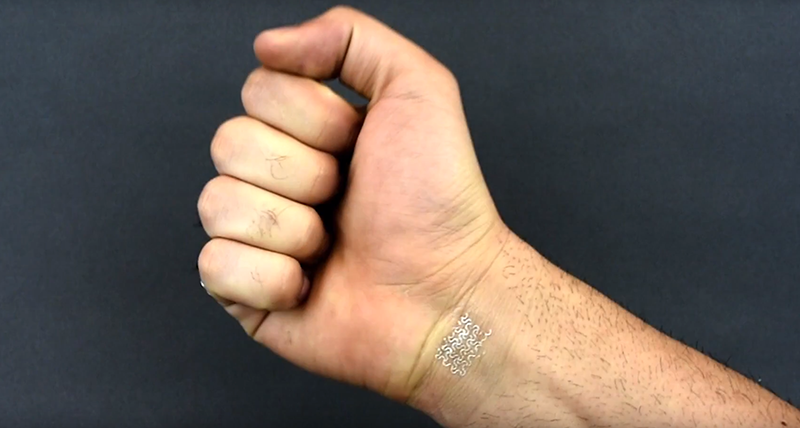Heart surgery in itself can be a traumatic experience for patients, and having to continuously monitor your health status without a doctor present when you’re back home can be even scarier. A simple sticker may perform the task well and keep you tension free.
Read more Ultra-Sensitive Electronic Skin Can Feel Touch and Temperature Changes
Researchers at Purdue University have created sticker like wearable electronic devices that someone can easily attach to their skin. The devices are made out of paper to lower the cost of personalized medicine.
“For the first time, we have created wearable electronic devices that someone can easily attach to their skin and are made out of paper to lower the cost of personalized medicine,” said Ramses Martinez, a Purdue assistant professor of industrial engineering and biomedical engineering, who led the research team.
The new technology comes at a time, when Purdue is celebrating Giant Leaps, acknowledging the university’s global advancements made in health as part of the institution’s 150th anniversary. This is one of the four themes of the yearlong celebration’s Ideas Festival, designed to showcase Purdue as an intellectual center solving real-world issues, reports Purdue Newsroom.
The researchers used cellulose, a substance that is both biocompatible and breathable, to make the smart stickers. They are able to monitor physical activity and alert the user about possible health risks in real time.

The stickers could be used as implantable sensors, allowing doctors to sleep activity of patients. The stickers conform to internal organs without causing any adverse reactions. Athletes could also use the technology to monitor their health while exercising and swimming.
To make them as thin and stretchable as skin, the stickers are patterned in serpentine shapes, making them unnoticeable for the wearer.
Read more This ‘OLED Patch’ Will Heal Your Wounds Anywhere and Any Time
To prevent degradation, the stickers were coated with molecules that repel water, oil, dust and bacteria.
The stickers are also cheap, costing around a nickel to produce each one. They can be made using printing and manufacturing technologies similar to those used to print books at high speed.
“The low cost of these wearable devices and their compatibility with large-scale manufacturing techniques will enable the quick adoption of these new fully disposable, wearable sensors in a variety of health care applications requiring single-use diagnostic systems,” said Martinez.












